These Are The biggest car recalls of 2024 (Quartz)

Less than six months into the year, almost 500 recalls have been filed with U.S. regulators, affecting everything from pickup trucks to tires to airbags.
However, not all recalls should be treated equally. Some affect less than a hundred cars, while others affect millions. And they can have profound implications, not just for the businesses that have to scramble to fix their cars, but for drivers — ordinary people who are put at risk by manufacturing glitches.
Between the top three recall leaders — Ford Motor, Kia America, and Stellantis, which is doing business as Chrysler FCA — more than six million units have already been recalled this year. That doesn’t include the dozens of other recalls issued by car companies and associated manufacturers, like General Motors or Toyota Motor.
Check out if your car is involved in one of the — for now — 10 largest recalls of 2024.
All the Teslas

By far, Tesla’s January 30 recall of almost 2.2 million vehicles is the largest of 2024. The notice applied to essentially every Tesla on the road since 2012 — the Model S, Model 3, Model X, Model Y, and the Cybertruck.
However, the issue at hand was minor, at least in comparison to several other recalls. The NHTSA said the vehicles’ brake, park, and antilock brake warning lights were too small and out of compliance with federal standards.
To solve the problem, Tesla issued a free over-the-air software update to its fleet and adjust the size of the warnings.
Many have argued that the recall should not be labeled as such, pointing to the difference between physically taking a car to the dealership for a fix and waiting at home while it updates. However, any updates that pertain to safety are legally labeled a recall.
The Ford Explorer
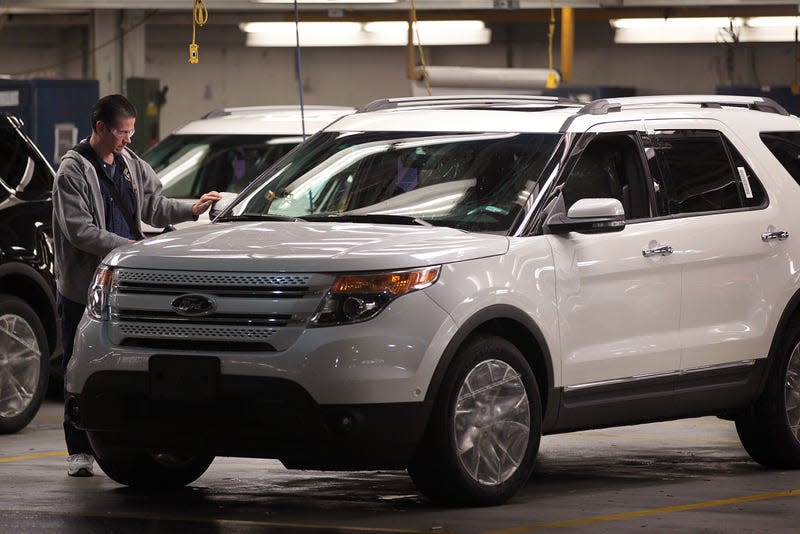
Ford Motor’s largest recall of 2024, so far, affects almost 1.9 million Explorer SUVs made between 2011 and 2019, or the entire fifth generation of the model.
Documents filed with the NHTSA in January said that the clips holding the trim covering the roof supports near the windshield can come loose and potentially fly off the car, posing a safety risk to other drivers and increasing the risk of a crash.
The recall came after Ford received 164 consumer complaints and regulators determined the problem was a safety hazard. By the time the recall was filed, Ford said it knew of 568 consumer complaints and more than 14,000 warranty reports alleging that the parts were missing or detached.
Ford told the Associated Press at the time that just 5% of Explorers are expected to be affected by the problem. Owners were notified on Feb. 16, and dealers were instructed to inspect the trim pieces and add adhesive, if necessary, to hold them in place.
Chrysler, Jeep, Dodge, and Ram, oh my!
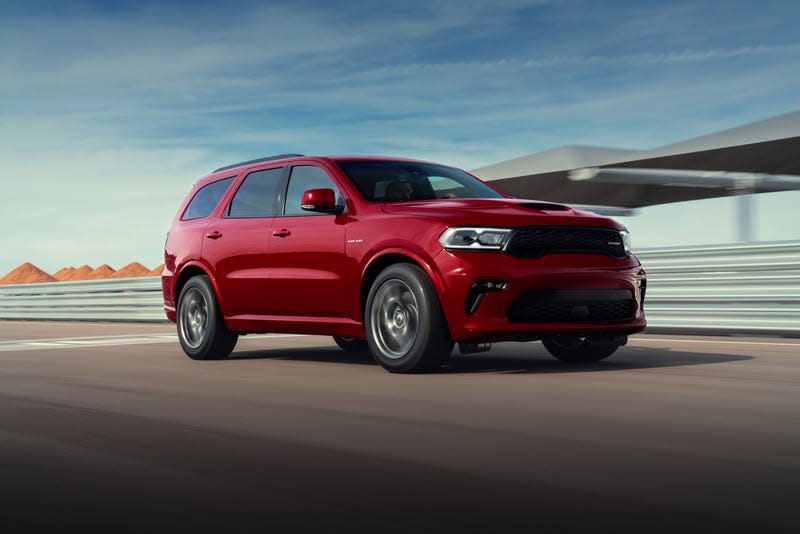
Stellantis, the parent company behind brands like Jeep and Chrysler, is recalling 1.033 million vehicles in the U.S. due to a software bug that could increase the risk of a crash.
The recall affects a long line of models across the European automaker’s lineup: the 2021-2022 Dodge Durango; 2021-2023 Chrysler Pacifica; 2021-2023 Jeep Grand Cherokee; 2022 Ram 1500, 2500, and 3500 models; as well as the 2022-2023 Jeep Compass, Grand Cherokee, Wagoneer, Grand Wagoneer, and Ram Promaster vehicles.
The radio software present in those models may prevent rearview cameras from properly displaying when in reverse, which could increase the risk of a crash, according to the NHTSA. To fix the problem, Stellantis will update the radio software present in the affected vehicles for free.
Honda Odyssey, Acura TLX, and more
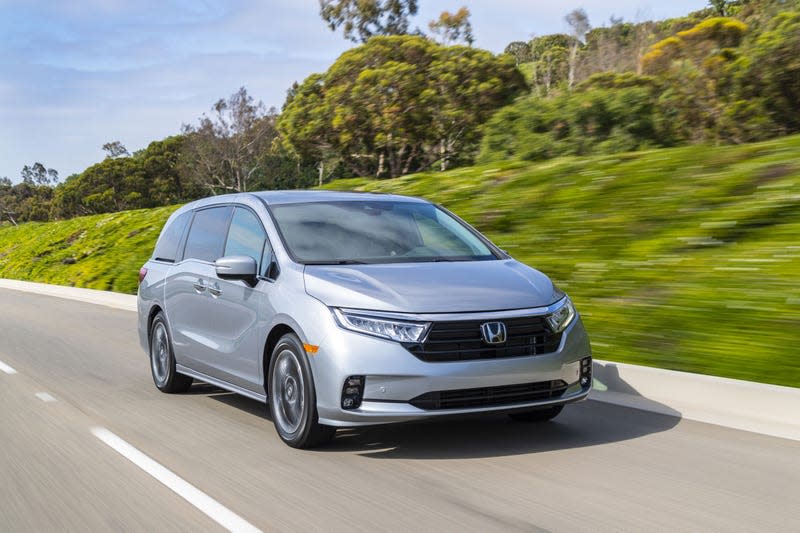
In February, Honda Motor issued a recall for more than 750,000 vehicles across its mainline and Acura luxury brands. The recall affected a long line of vehicles, including the 2020-2022 Pilot, Accord, Odyssey, and versions of the Civic. Acura’s 2020 and 2022 model year MXD, 2020-2022 RDX, and 2020-2021 TLX were also affected.
Honda said the weight sensor in the front passenger seat of those vehicles may crack and short circuit. If a crash occurs, the airbags for that seat may deploy even if it is occupied by an infant or small child, increasing the risk of injury, according to the NHTSA.
Licensed Honda dealers are required to replace the seat weight sensors for free, and owner notification letters were mailed to customers on March 28.
Chevy Silverado and GMC Sierra
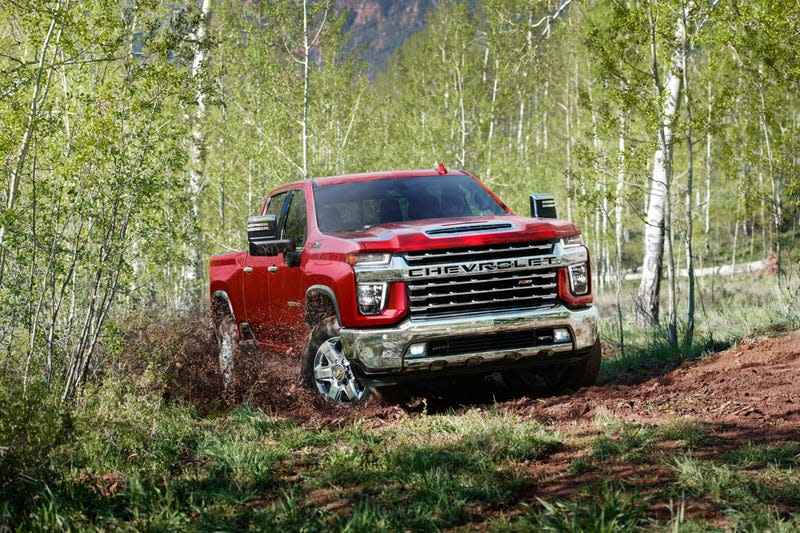
General Motors said in February that it would recall more than 570,000 vehicles across the Chevrolet and GMC brands, citing issues with power-unlatching tailgates. The part’s electronic switch may short circuit if water gets into it, which can cause the tailgate to unlatch while the vehicle is parked.
GM added that if a driver doesn’t manually close the gate before driving, any cargo put in the truck bed may fall out of the vehicle and onto the road, becoming a safety hazard. The company said it had identified 136 complaints, including one allegation of a minor injury and three complaints describing property damage.
The recall affects some 2020-2024 Chevrolet Silverado 2500 and 3500 pickup trucks and some GMC Sierra 2500 and 3500 pickups. Dealers were instructed to replace part of the switches for free; letters to owners went out on May 17.
The Kia Telluride
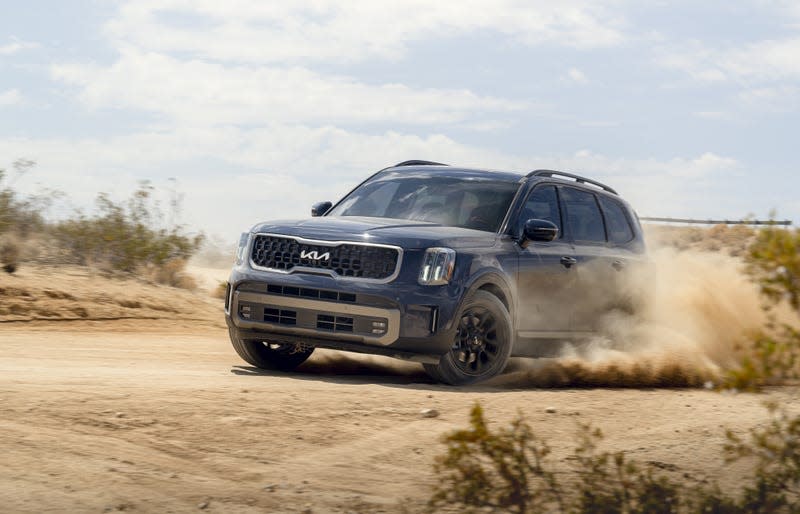
Kia America on June 10 issued a “park outside” recall affecting 462,869 Telluride SUVs, saying a stuck power seat slide knob can cause the front seat’s motor to overheat, causing a fire. It says the risk exists both when the car is driving or parked, according to documents filed with the NHTSA.
The recall affects the 2020-2024 Telluride, which has been the subject of several recalls in 2024. The automaker is aware of seven incidents, including one under-seat fire and six cases in which the seat’s tilt motor melted. According to Kia, there have been no injuries, crashes, or deaths related to the issue.
Telluride owners will be instructed via mail on July 30 and 31 to bring their car to a licensed dealer, which will install an improved knob and a fix to prevent it from getting stuck. Kia is asking owners to keep their SUVs outside and away from other cars or buildings.
Ford’s Bronco and Maverick
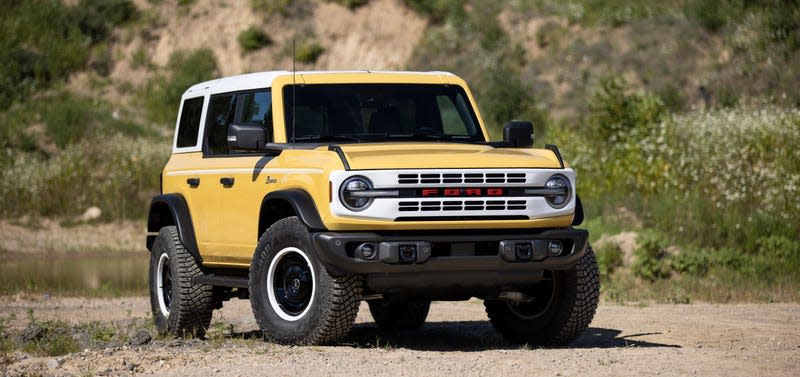
Ford Motor in April issued a recall for almost 457,000 2021-2024 Bronco Sport SUVs and 2022-2023 Maverick pickups over issues detecting battery degradations, according to documents filed with regulators.
The automaker said that if a vehicle could not detect the changes during a drive cycle, the cars may be unable to restart after starting or stopping. The vehicle may also stall while stopping at low speeds, and some 12-volt accessories — like hazard lights — may be inoperable.
As of February, Ford said it was aware of 917 warranty reports and 54 complaints; the company said it was unaware of any injuries. The NHTSA said at the time that it had three unverified reports of fires starting and two property damage claims.
Dealers are required to update the Broncos and Mavericks for free, with owners being informed by mail on May 13. Consumers have until July 1 to ask Ford to reimburse them for services rendered before the recall was issued.
Deja Vu: The Kia Telluride is back
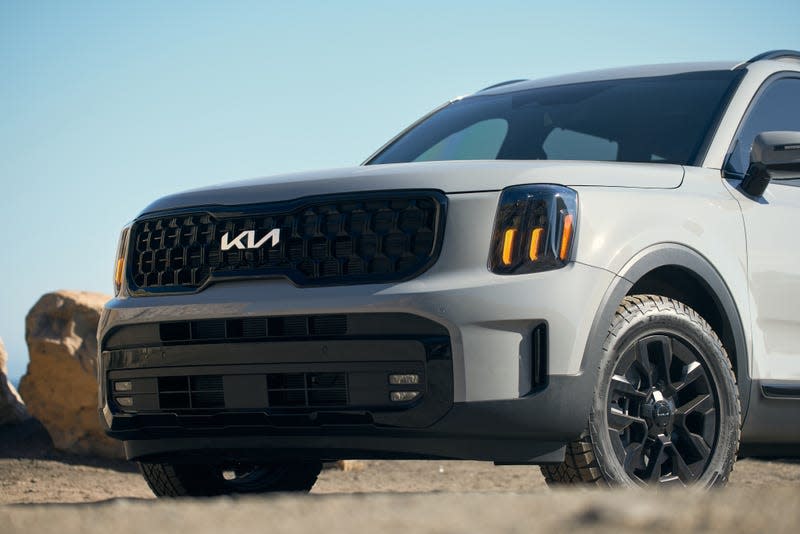
Kia America in March recalled 427,407 Telluride SUVs because they can roll away — even when put into park.
The recall affects all model year 2020 through 2023 Telluride vehicles and certain 2024 SUVs made between January 2019 and October 2023, according to the NHTSA.
The vehicles may have issues with the intermediate shaft and right front driveshaft failing to fully engage because of assembly issues, according to Kia. As a result, the parts may become damaged, allowing the Telluride to roll away even when the vehicle has been shifted into “Park.”
Kia dealers will install updated software that automatically engages the electronic parking brake (ECB) to prevent movement free of charge. Owners of the impacted models were notified between May 15 and May 17.
The Toyota Tacoma
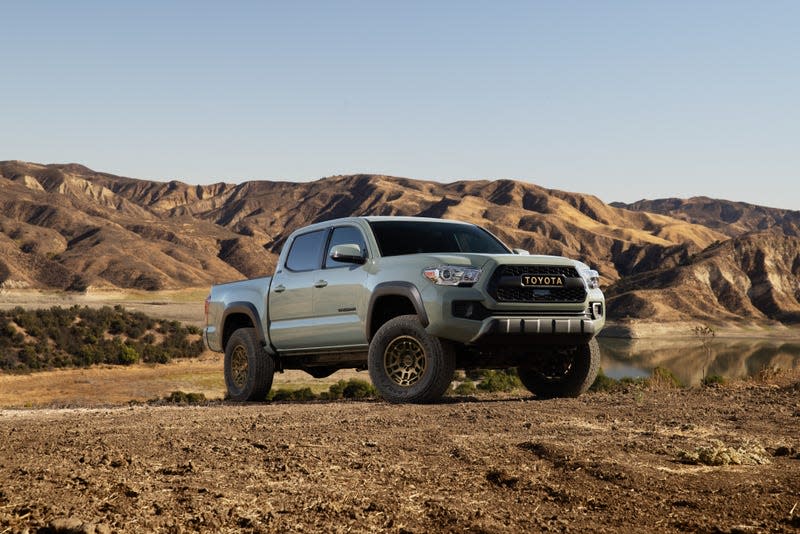
In February, Toyota Motor issued its largest recall of the year so far, surpassing an earlier recall of 280,000 vehicles over unexpected movement when cars were put in neutral.
The Japanese carmaker recalled 381,000 2022-2023 Tacoma pickup trucks on Feb. 27, although just a fraction were built with the specific part at the heart of the order.
Some Tacomas were made with welded-on axle housings from a supplier that used improperly used equipment, allowing for “splatter from the welding” to secure components improperly. That debris could loosen the nuts securing parts of the vehicles’ axles, making the Tacomas more unstable and affecting brake performance.
Dealers are required to inspect the rear axle assembly of the affected vehicles for free and repair the car as necessary. Letters to owners were sent on April 13.
The Jeep Grand Cherokee
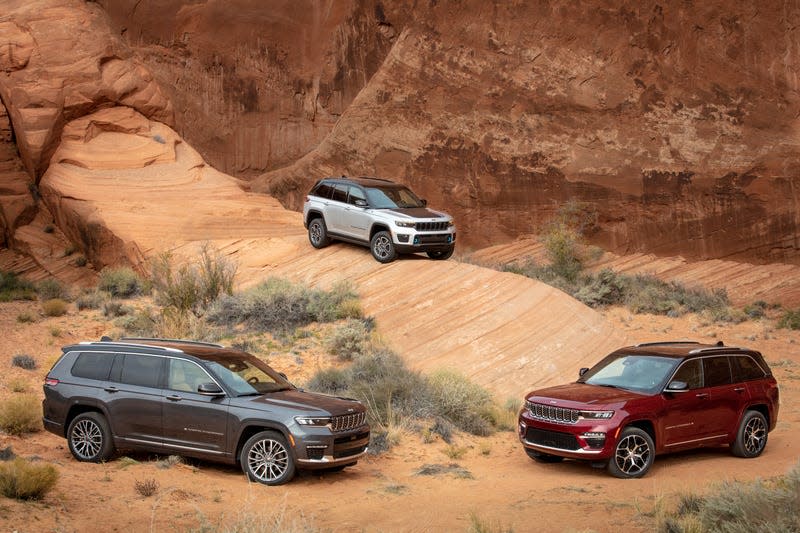
- Photo: Jeep
Stellantis rounds off the top 10 largest vehicle recalls of the year so far, with an order affecting more than 338,000 Jeep trucks. The February recall affects the 2021-2023 Jeep Grand Cherokee L and 2022-2023 Jeep Grand Cherokee SUVs.
The upper control arm ball joint and steering knuckle in the Jeeps’ wheels may separate, Stellantis said, which could cause the wheel to fall outward and tear control of the SUV away from the driver. Vehicles with the defect have “pinch bolts” in the upper control arm that were damaged during the assembly process, according to NHTSA documents.
Licensed dealers are required to replace the vehicles’ pinch bolts for free, which will resolve the issue. Stellantis began notifying owners on April 12.

 Yahoo Autos
Yahoo Autos 